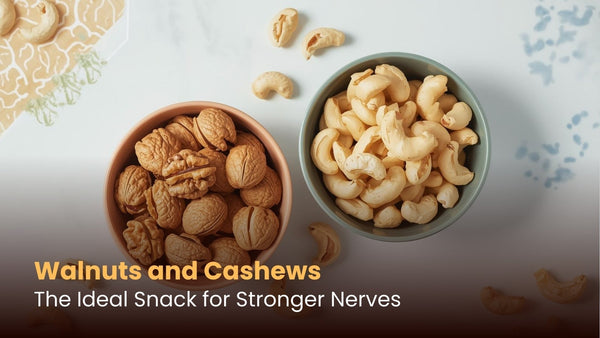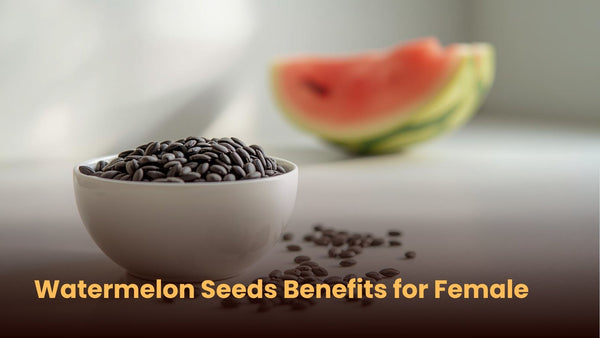Dry fruits are those that have undergone various drying processes, like dehydration or sun drying, to remove the majority of their water content. These delightful and nutrient-dense snacks can be incorporated into a range of dishes or enjoyed as a standalone treat.
They are rich in essential nutrients. Let's examine the health advantages of some common dry fruits, including dates, raisins, apricots, prunes, figs, walnuts, cashews, and pistachios. They can be eaten on their own as a quick and healthful snack, or they can be a terrific addition to cereals, salads, yoghurt, and smoothies.
In this article, we will explain the nutritional value and health benefits of these superfoods in detail.
Nutritional Value of Dry Fruits
Dry fruits are a veritable nutritional gold mine, including a multitude of vital vitamins, minerals, fibre, and good fats. Your overall health and well-being can significantly improve once you learn about their dietary advantages. For professional guidance, you can have an online dermatologist consultation. Let's examine the many nutrients included in dry fruits:
Vitamins
Vitamin E, which functions as an antioxidant to shield cells from harm by free radicals, is abundant in dry fruits. Sunflower seeds, walnuts, and almonds are rich sources of vitamin E. Dates, raisins, and apricots are rich in vitamin A, which is important for the immune system and visual health.
Minerals
A great way to get important minerals is by eating dry fruits. Dried apricots, prunes, and raisins are good sources of potassium, which helps control blood pressure and strengthens the heart. Almonds, cashews, and pistachios are good sources of magnesium, which supports bone health and aids in muscle and nerve function. Cashews and prunes are high in copper, which is essential for the production of collagen and the absorption of iron.
Protein
Due to their high protein content, dry fruits such as walnuts, pistachios, and almonds are a great source of protein for vegans and vegetarians. Protein is needed for hormone and enzyme synthesis, muscle maintenance, and tissue repair.
Fibre
Fibre helps to maintain a sensation of fullness after eating and is necessary for digestive health. Particularly high in dietary fibre that supports regular bowel motions and general gut health are dates, figs, and prunes.
Antioxidants
Rich in antioxidants, especially raisins and prunes, they aid the body in scavenging damaging free radicals. Antioxidants are essential for lowering oxidative stress, which is connected to ageing and a number of chronic illnesses.
Healthy Fats
Monounsaturated and polyunsaturated fats, such as omega-3 and omega-6 fatty acids, are abundant in almonds, walnuts, and pistachios. These heart-healthy fats also aid in lowering inflammation, enhancing mental function, and enhancing general wellbeing.
Natural Sweeteners
Two natural sweeteners that can be used in dishes and snacks are dates and raisins. They have more nutritional advantages and are a healthier substitute for processed sugars.
Health Benefits of Dry Fruits
Besides being a powerhouse of nutrients, dry fruits offer extensive health benefits that improve your well-being with regular consumption. Let us list these benefits.
Good for Heart Health
The heart-healthiest dry fruits include walnuts, pistachios, and almonds. Omega-3 fatty acids, which lower blood triglycerides to regulate cholesterol, are found in walnuts. They thereby lessen the risk of heart attacks and avoid arterial blockage.
Lower the Risk of Cancer
Vitamin A, which is abundant in phytonutrients, is found in dry fruits like almonds. They are useful in avoiding a variety of cancers in the body because they are known to stop the actions of cancer-causing cells.
Boost the Immune System
Potassium, magnesium, calcium, zinc, phosphorus, and several vitamins, including A, D, B6, K1, and E, are abundant in dry fruits. A study found that dry fruits with high polyphenol content had anti-inflammatory properties that support stronger immunity. It results from various dry fruits' antioxidant qualities. It also relieves oxidative stress and gets rid of free radicals.
Promote Weight Loss
Carbohydrates and dietary fibre are found in abundance in dry fruits. Dietary fibre reduces the desire to eat between meals and prolongs feelings of fullness. Your calorie intake thus decreases. Additionally, dietary fibre promotes better bowel movements and intestinal health. Two key components of weight loss are reduced caloric intake and a healthy digestive system. Therefore, dietary fibre-rich dry fruits aid in weight loss. Studies show that your body needs some time to absorb the fat in various nuts. As a result, it stops weight gain.
Dry Fruits Benefits for Skin
Free radicals are unstable molecules that have a propensity to cling to the body's oxygen supply. This causes oxygen deprivation in the healthy cells, which results in oxidative stress. Studies show that persistent inflammation and a number of skin illnesses can be brought on by oxidative stress. Thus, achieving and maintaining good skin can be facilitated by eating a diet high in antioxidants.
Strengthen the Bones
Nutrients such as calcium, magnesium, boron, and vitamin K are abundant in dry fruits. Our bone health is influenced by these substances. For instance, calcium is abundant in our skeletal system, and a number of dry fruits, such as figs and dried apricots, also contribute to sufficient calcium intake. Eating a diet rich in dry fruits can help lower the risk of osteoporosis. According to studies, problems with bone impairment could result from a low boron intake.
Blood Pressure Management
An excess of magnesium in the body can cause hypertension. Numerous other conditions, including heart attacks, kidney failure, and stroke, might result from it. Almonds, one of the most often consumed dry fruits, have a naturally high magnesium content of around 76.5 mg per 28g serving. Thus, consuming almonds might be quite advantageous to your diet.
Enhance Digestive Health
Dietary fibre, which is essential for regular and healthy digestion, can be found in good amounts in dry fruits. The indigestible fibre found in plant-based diets gives the stool more volume and facilitates bowel motions while also passing through the digestive tract largely undigested.
Management of Type-2 Diabetes
A 2017 study shows that dry fruits and type-2 diabetes are positively correlated. Dried fruits and nuts work well to prevent metabolic illnesses like type 2 diabetes. Their potent combination of macronutrients, micronutrients, and other bioactive substances can lower the risk of diabetes. According to research, the dietary fibre included in a variety of dry fruits, including cashews, may assist in regulating insulin levels, thereby reducing blood sugar increases.
Benefits of Mixed Dry Fruits

When you eat mixed dry fruits, you can unlock the extensive benefits of each component. Here is a list of benefits each of them offers:
Almonds
- Rich in monounsaturated fats and antioxidants, almonds help lower LDL cholesterol and improve heart health.
- High in calcium, which can strengthen the bones.
- Help stabilize blood sugar levels due to their low glycemic index and high fibre content.
Cashews
- High in copper, magnesium, and zinc, which support immune function, bone health, and energy production.
- Contain healthy fats that can help address the risk of heart disease.
- Rich in antioxidants that help protect cells from oxidative damage.
Raisins
- High in dietary fibre, raisins can aid in digestion and prevent constipation.
- Good source of iron, which is crucial for preventing anaemia.
- Rich in polyphenols, which have anti-inflammatory properties.
Anjeer (Figs)
- High in fibre, which supports healthy digestion and can alleviate constipation.
- Contain calcium and magnesium, which are beneficial for bone strength.
- Packed with antioxidants like flavonoids and polyphenols that help combat oxidative stress.
Walnuts
- Rich in omega-3 fatty acids, which are beneficial for cognitive function and mental health.
- Help reduce inflammation and boost cardiovascular health.
- High in antioxidants that provide protection against cellular damage.
Pistachios
- Contain monounsaturated fats that help cut down bad cholesterol levels.
- High in lutein and zeaxanthin, both being beneficial for eye health.
- Good source of plant-based protein, which is important for muscle health and repair.
Cranberries
- Known for their role in preventing urinary tract infections due to their high content of proanthocyanidins.
- Rich in vitamin C and antioxidants that help boost the immune system and fight oxidative stress.
- Can help reduce the risk of heart disease by improving cholesterol levels and reducing blood pressure.
Pine Nuts
- High in healthy fats, protein, and iron, which provide energy and support overall vitality.
- Contain monounsaturated fats and antioxidants that promote cardiovascular health.
- Rich in vitamin K, which can improve blood clotting and bone health.
Gender-Specific Benefits of Dry Fruits
Dry fruits can offer a range of health benefits that are generally beneficial for everyone, but certain benefits can be more pronounced depending on gender. Here’s a look at how dry fruits might specifically benefit men and women:
Dry Fruit Benefits for Men
-
Heart Health: Nuts like almonds and walnuts are rich in monounsaturated fats, omega-3 fatty acids, and antioxidants, which support cardiovascular health and may help reduce the risk of heart disease. Given that men are at a higher risk for heart disease, including these in their diet can be particularly beneficial.
-
Prostate Health: Pumpkin seeds are often included in discussions about prostate health due to their high zinc content, which is important for maintaining prostate function.
-
Muscle Recovery: Cashews and pistachios provide protein and essential amino acids that aid in muscle repair and recovery, which can be particularly advantageous for men who engage in regular physical activity or strength training.
-
Testosterone Levels: Pine nuts are high in zinc and magnesium, which are important for maintaining healthy testosterone levels and overall reproductive health.
-
Energy and Stamina: Cashews and almonds offer a good balance of protein, healthy fats, and carbohydrates, providing sustained energy and stamina.
Dry Fruit Benefits for Women
-
Bone Health: Almonds and figs (anjeer) are rich in calcium and magnesium, which are crucial for bone density. Women, especially as they age, are at higher risk for osteoporosis, so maintaining bone health is vital.
-
Hormonal Balance: Walnuts are rich in omega-3 fatty acids, which help balance hormones and can be particularly beneficial during menstruation and menopause.
-
Skin Health: Cranberries and almonds are high in antioxidants and vitamins like vitamin E, which are beneficial for maintaining healthy, youthful skin and combating signs of aging.
-
Iron Levels: Raisins and figs (anjeer) are good sources of iron, which is important for women, especially during menstruation when iron levels can drop.
-
Energy and Weight Management: Pistachios and almonds are high in fiber and healthy fats, which can help with satiety and weight management, a concern for many women looking to maintain or lose weight.
Why Eat Soaked Dry Fruits?
When it comes to eating dry fruits, soaking them beforehand is the secret to achieving the best benefits compared to consuming them in their dry, unsoaked state. Here are a few benefits of soaked dry fruits:
Improved Nutrient Absorption
Soaking can help break down the phytic acid found in dry fruits, which can inhibit the absorption of essential minerals like iron, zinc, and calcium. This makes the nutrients in the dry fruits more accessible to your body.
Digestive Benefits
Soaking dry fruits can help to soften them, making them easier to digest and reducing the strain on your digestive system. Additionally, it can decrease the content of tannins, which can interfere with digestion and nutrient absorption.
Increased Enzyme Activity
Soaking can activate beneficial enzymes in the dry fruits, which aid in digestion and can help improve nutrient absorption.
Softened Texture
Soaked dry fruits are softer and easier to chew, which can be especially beneficial for people with dental issues or those who prefer a less chewy texture.
Reduced Anti-Nutrient Content
Phytates are compounds that can bind minerals and reduce their absorption. Soaking helps to reduce their concentration, making the minerals in dry fruits more available.
Improved Flavour
Soaking can sometimes enhance the natural sweetness of dry fruits, making them more palatable for people who are more taste-sensitive.
Healthier for Certain Conditions
For individuals with sensitive stomachs or gastrointestinal issues, soaked dry fruits can be gentler on the digestive tract.
Wrapping Up
In conclusion, incorporating dry fruits into your diet offers a multitude of health benefits that support overall well-being. These nutrient-dense foods—such as almonds, cashews, raisins, figs, walnuts, pistachios, cranberries, and pine nuts—are rich in essential vitamins, minerals, healthy fats, and antioxidants. They contribute to various aspects of health, including cardiovascular wellness, digestive health, bone strength, and energy levels.
For added benefits, consuming soaked dry fruits can enhance nutrient absorption, improve digestion, and make them easier to chew and digest. By including a variety of dry fruits in your diet, you can harness their unique nutritional profiles to support heart health, improve skin appearance, manage weight, and enhance overall vitality.











Share Your Thoughts